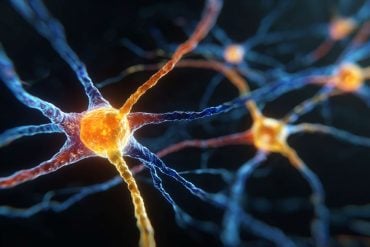Summary: A new study has linked obstructive sleep apnea to brain damage in areas critical for memory, likely due to low oxygen levels during REM sleep. Researchers found that people with lower oxygen saturation during REM had more white matter hyperintensities—signs of small vessel damage—on brain scans.
This damage was also associated with reduced size in the hippocampus and entorhinal cortex, both crucial for memory, and linked to poorer performance on memory tests. While the study does not prove causation, it offers insight into how sleep apnea may contribute to cognitive decline and memory loss in aging and Alzheimer’s disease.
Key Facts:
- Oxygen and Brain Damage: Low oxygen during REM sleep was linked to small vessel brain damage.
- Memory Regions Affected: Damage correlated with reduced volume in the hippocampus and entorhinal cortex.
- Potential Cognitive Impact: These brain changes were associated with poorer sleep-dependent memory.
Source: AAN
Obstructive sleep apnea, a condition that causes lower oxygen levels during sleep, is linked to degeneration of brain regions associated with memory through damage to the brain’s small blood vessels, according to a study published May 7, 2025, online in Neurology.
The study found the brain changes were strongly associated with the severity of drops in oxygen levels during rapid eye movement (REM) sleep. The study does not prove that sleep apnea causes this degeneration; it only shows an association.

Obstructive sleep apnea occurs when throat muscles relax during sleep, blocking the airway, causing a person to wake up repeatedly to breathe. This disrupted sleep pattern can lower oxygen levels, which in turn can damage small blood vessels in the brain.
REM sleep is the stage when most dreams occur and is associated with numerous critical functions in sleep including memory consolidation and processing of emotional experiences.
“Obstructive sleep apnea is a sleep disorder that increases with age, and low oxygen levels during sleep can harm the ability of our brain and body to function properly,” said study author Bryce A. Mander, PhD, of the University of California Irvine.
“Our study found that low oxygen levels from obstructive sleep apnea, especially during REM sleep, may be linked to cognitive decline due to damage to the small blood vessels in the brain and the downstream impact of this damage on parts of the brain associated with memory.”
The study included 37 people with an average age of 73 who did not have cognitive impairment. They were not taking sleep medications. Participants had overnight sleep studies. Of the group, 24 people had obstructive sleep apnea.
Researchers measured their oxygen levels throughout the night during all stages of sleep, including REM sleep.
Participants had brain scans to measure brain structure.
Researchers found that lower oxygen levels during REM sleep were associated with higher levels of white matter hyperintensities in the brain. White matter hyperintensities are bright spots that appear on brain scans which are thought to reflect damaged white matter tissue. This damage can be caused by injury to small blood vessels in the brain.
Minimum blood oxygen saturation levels during sleep and the total time spent asleep below a blood oxygen level of 90% predicted the amount of total white matter hyperintensities in the brain. Having a blood oxygen level of 90% or lower is cause for concern.
Researchers also measured the volume of the hippocampus and thickness of the entorhinal cortex, both of which are areas associated with memory. They found having more white matter hyperintensities was linked to decreased volume as well as reduced thickness in these areas.
Participants took a memory test before and after sleep to determine sleep-dependent memory. Researchers found that deficits in sleep-dependent memory were linked to reduced thickness of the entorhinal cortex.
“Taken together, our findings may partially explain how obstructive sleep apnea contributes to cognitive decline associated with aging and Alzheimer’s disease through the degeneration of brain regions that support memory consolidation during sleep,” said Mander.
A limitation was that study participants were primarily white and Asian people, so results may not be the same for other populations.
Funding: The study was supported by the National Institute on Aging and the American Academy of Sleep Medicine Foundation.
About this memory and sleep apnea research news
Author: Natalie Conrad
Source: AAN
Contact: Natalie Conrad – AAN
Image: The image is credited to Neuroscience News
Original Research: The findings will appear in Neurology







